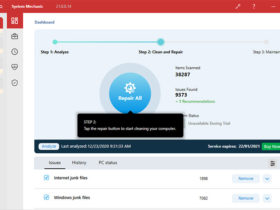Starting your own private medical practice can be an exciting venture, but there are a lot of things that you need to think about and sit down and plan for. Furthermore, unless you are independently wealth (unlikely) or come from a wealthy family (still unlikely), you are going to have to borrow a considerable amount of money in order to get started, so you need to budget very carefully. You don’t want to have to scrimp and scrape, yet by the same token you don’t want to borrow more than is necessary. Having said that, when you have calculated your budget, most experts would tell you to add on 10% to cover unforeseen expenses or miscellaneous fees or charges.
Just to begin with, you need premises from which to operate, and once you have located a suitable site you are going to have to fit it out as a doctor’s surgery, which is almost certainly going to be very different from whatever the property was used for beforehand. Just doing that is going to cost a fair old chunk of money.
Next you need to identify which costs will be one-time, which will be monthly, quarterly, and so on. This will help you to manage your budget better and get everything off the ground smoothly so that you don’t get caught out later on. In addition, you need to consider which costs are capital expenses and which may be variables for the practice.
The precise costs for starting your practice will depend on a number of variables, not the least of which is the type of practice that you are starting. If you are starting a specialist practice you may need some items which are not required in a general practice, for instance. Another factor is the area of the country in which you are opening your practice, since rents in some parts are a lot less than others. Rents in London, Birmingham, Manchester, and other major cities are a lot more than somewhere like Swanage in Dorset or Bamburgh in Northumberland.
You also need to get your timing right. If you get it wrong, the costs and charges can begin to escalate out of hand, and furthermore any delays in opening your practice will simply have an impact on your revenue stream, because there won’t be any until you do open. Even then, you have to advertise for patients, whether that is using social media or direct advertising. It takes time to build up a steady stream of patients coming through the door, and then you have to bill them and wait for payment, unless you set up an EFTPOS machine in the practice reception so that patients can pay before they leave. This would help to reduce the number of invoices that you would have to send out.
Then there is the potentially very large investment in hardware and medical consultant software for your business. According to some experts, starting your business in the cloud can save a considerable amount. This cuts out a large investment in servers, hardware and IT support staff. It also cuts out many ongoing operational costs. Furthermore, you will always be using the very latest software, because cloud suppliers have to keep up to date with the latest technology or they would start to lose business. In effect, using the cloud, you are simply renting the services that you need. In addition, you are not paying for medical consultant software or systems that you may not use very much.
Of course, another major cost that has to be taken into account is staffing. This will increase year on year, so anything that you can do to keep staff costs down is a help. Automating repetitive admin tasks can help you to save money, not just when you open for business, but ongoing.
Setting up any sort of medical practice from scratch is going to be expensive, but when you consider your budget, it is best to overestimate rather than underestimate, since that way you won’t get caught out over something that costs more than you planned or that you hadn’t accounted for in the first place. If all goes well, you can cut down on your borrowing, but you can be confident that the money is there if it is needed.











